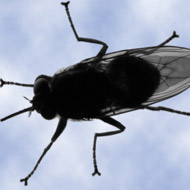
Fresh discoveries could enable the design of treatments to tackle diseases without harm to the patient
Researchers at the University of Edinburgh believe that an enzyme, found in all living things, could hold the key to combating deadly parasite diseases such as sleeping sickness.
A study into the enzyme, which helps cells convert nutrients into energy, has revealed that it is activated in various ways in different species.
The researchers say that this finding creates an opportunity to design drugs that inhibit activity of the enzyme in species that cause infection. Blocking the enzyme effectively kills the parasite, but does not affect the same enzyme in the patient.
It is hoped that the findings will lead to new treatments for diseases spread by parasites that affect millions of people in the developing world.
It is also anticipated that the discovery will ultimately help fight a variety of healthcare problems, including antibiotic resistance and some cancers.
A range of analytical techniques were employed to learn how the enzyme - pyruvate kinase - functions in bacteria, mammals and parasites.
The scientists discovered that the enzyme becomes active in all species in a similar way. A small sugar molecule binds to the enzyme to begin the process of nutrient absorption. However, each species has a unique mechanism for activating the enzyme, which provides opportunities to design drugs that block its activity in individual species.
Professor Malcolm Walkinshaw, who led the study, said: "With this discovery, we've found an Achilles heel for sleeping sickness and many other conditions. Fresh discoveries about this key enzyme - pyruvate kinase - could enable the design of treatments to tackle diseases without harm to the patient."
Image (C) David Dennis



 The Animal and Plant Health Agency (APHA) has updated its online reporting service for dead wild birds.
The Animal and Plant Health Agency (APHA) has updated its online reporting service for dead wild birds.